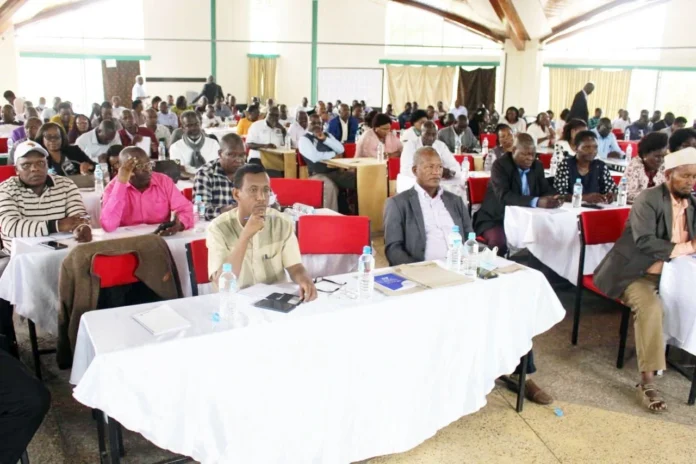As the Kenya Secondary Education Quality Improvement Project (SEQIP) nears its conclusion in December 2024, the Ministry of Education (MoE) is taking stock of its noteworthy achievements. This World Bank-funded initiative has been pivotal in enhancing the quality of education in Kenya, particularly in areas facing educational and economic challenges.
Improvements in Teaching Quality and Student Learning:
Jane Mbugua, the project’s National Coordinator, emphasized the significant strides made in elevating the quality of teaching and fostering student learning. The targeted areas witnessed improvements in teacher-student ratios, addressing the longstanding issue of teacher shortages. Mbugua noted that the project has positively impacted retention rates in upper primary schools and facilitated a smoother transition from primary to secondary education.
Government Agencies and Collaborative Efforts:
Multiple government agencies, including the Centre for Mathematics, Science and Technology in Africa (CEMASTEA), the University of Nairobi (UoN), Kenya Institute of Curriculum Development (KICD), Kenya National Examination Council (KNEC), and partner agencies, played vital roles in the successful implementation of SEQIP. This collaborative effort underscores the project’s comprehensive approach to addressing the diverse challenges faced by the education sector.
Challenges Faced by SEQIP:
While celebrating the successes, it’s crucial to acknowledge the challenges encountered during SEQIP’s journey. Issues with contractors and suppliers, as illustrated by complaints of delayed payments, reflect the complexities of executing a project of this magnitude. However, such challenges provide valuable insights for future educational initiatives.
Impact on Teacher Professional Development:
The Teacher Professional Development (TPD) component of SEQIP has been instrumental in training 51,950 subject matter expert teachers, principals, and headteachers. The School-Based Teacher Support System (SBTSS) has been successfully implemented in thousands of primary and secondary schools, contributing to a more robust education system.
Infrastructure Development and Scholarships:
SEQIP’s impact extends beyond the classroom, with a focus on improving infrastructure in schools. Over a thousand classrooms, laboratories, sanitation facilities, and water packages have been constructed, significantly enhancing the learning environment. Additionally, the Elimu Scholarship program has provided educational opportunities to 18,000 needy learners, with a commendable 98.7% retention rate.
Systems Reform Support and Curriculum Development:
A notable achievement of SEQIP is the introduction of the Competency-Based Curriculum (CBC) Grades 4 to 9, marking a significant shift in the educational paradigm. The project’s dedication to training stakeholders, including teachers and curriculum support officers, highlights a commitment to sustaining positive changes in the education system.
